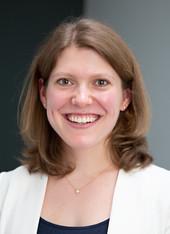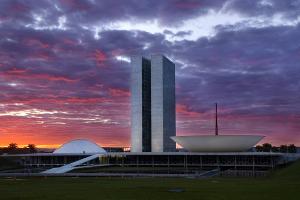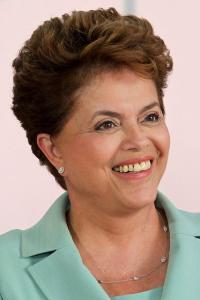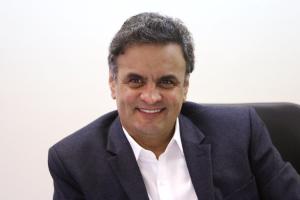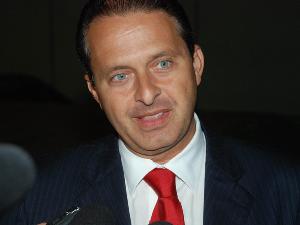Given the rather loose party landscape in Brazil the elections are rather personalized (or focused on the individual candidates). It involves three candidates, all of whom claim to be socialist or social democratic candidates, at least in official rhetoric, so sometimes they claim to represent the left yet when analyzed more closely it is Dilma Rousseff and her Workers Party (PT) that truly represent socialist undercurrent, whereas Aécio Neves is the liberal candidate of the middle class. Eduardo Campos represents alongside his deputy, the environmental activist and former Minister Marina Silva, the socialist-green alternative. Other politicians will also stand, however they stand no chance of winning.
Who is who?
Dilma Rousseff, Workers Party (PT)
Dilma Rousseff has been leading the country since 2010. Under her predecessor Lula, she was Minister of Energy and most recently she acted as the President's Secretary (comparable to the German Chancellery Minister), the right hand of her predecessor. Dilma also owes it to his intervention that in 2010 she was the first female presidential candidate and finally elected to lead the country. In the PT-party conference in June, she was nominated by acclamation by the delegates to be the presidential candidate. She entered the presidential race with the campaign slogan "More change, more Future". Dilma's popularity has declined steadily over the course of this year. Her presence at the World Cup opening match in São Paulo was booed and insulted by the majority of the visitors to the stadium. In social networks that are popular with the youth, hundreds of insults were directed at the president. Nevertheless, in the polls she is still ahead of her competitors. The current Vice-President Michel Temer of the PMDB will run again as Dilma's deputy.
Aécio Neves, Social Democratic Party (PSDB)
The senator from the conservative state of Minas Gerais, Aécio Neves, is Dilma Rousseff's fiercest competitor, and represents the largest opposition party in Brazil, the PSDB. This party represents both conservative and liberal, but also social democratic positions. Fernando Cardoso, who will strongly support the party during the presidential campaign, put the PSDB into the presidency from 1995 till2002, and introduced the ´Real Plan´ which brought about the current Real currency. As a consequence, the economy stabilized, thus lifting millions of Brazilians out of poverty, and laid the foundations for Brazil´s exponential growth in the 2000s. The PSDB promotes a socially just Brazil, which it considers the PT has run down. It also denounces the PT-clientelism. Aécio Neves is the grandson of Tancredo Neves, who was to be the first Democratic president of the country after the military dictatorship in 1985, however, died shortly before taking office. As a consequence, Neves represents the political caste which is loathed by the majority of Brazilians. It remains questionable whether he can overcome the stigma attached to being a member of the high upper class and the power structures that the former day laborer Lula sought to break through with his election in 2002. This particularly will depend on his ability to convince wider segments of the population of his vision for a more social Brazil by investing in public infrastructure and allowing more flexible working models. Recently Neves´ popularity increased significantly - but not to the same extent that Dilma´s decreased. Neves has not yet nominated an official Deputy presidential candidate, however, is supported by Liberal Democrats (DEM).
Eduardo Campos, Brazilian Socialist Party (PSB)
Eduardo Campos, the former governor of the northeastern state of Pernambuco, and leader of the Socialists, is the leftist alternative to President Dilma Rousseff. Campos has been given little chance of success. His only stronghold is his home state of Pernambuco. His elimination in the first round of voting is highly likely. His elimination in the first round of voting is likely. Campos´ socialist state model in Pernambuco led to remarkable growth and earned him respect. He is regarded as ambitious and it is not unlikely that he could compete again in upcoming presidential elections. With Marina Silva he has a deputy at his side, who exceeds his own popularity. Silva is known for her directness and commitment to stringent green policies - four years ago she was a presidential candidate and achieved a remarkable result. Now, however, she has changed party and is a PSB member.
Election campaign in Brazil
Which media will the candidates use to deliver their political messages? Due to the growth of the new lower middle class, the so-called "class C", the majority of Brazilian households now have a television. Here, the parties exude a percentage of their election results from the last election commercials. In the first ballot, the president's party gets 50% of the share of all campaign spots - an advantage that should not be underestimated. Only in the second round of voting, in which it comes to a run-off election between the two candidates with the most votes, the share returns to a fair 50-50 ratio. Social media, Facebook in particular, will play a crucial role. How many followers (´likes´) each of the candidates has will be commented on in the mainstream media, and here Neves has invested a lot. His Facebook fans now exceed the supporters of the incumbent.
So who will emerge victorious from this election and become the new Brazilian president? Will Dilma be able to assert her supremacy and keep her two opponents in the peripheries? It looks good all the way to the second scenario - in spite of all the prophecies and boos in defiance the Workers Party continues to possess a hereditary electorate, especially in the densely populated and underdeveloped northeast of the country. Neves´ political family history could also prevent many liberal and conservative voters from voting in his favor. A survey of candidate preferences by the Brazilian Research Institute ´Datafolha´ that was conducted in the beginning of June 2014 gave Dilma Rousseff an approval rating of 34%, put Aécio Neves at 19% and Eduardo Campos at 7%. Thus, although Dilma is steadily losing popularity, her two opponents can only moderately catch up or - in the case of Campos - are even losing self-confidence. Nevertheless, Dilma's competitors are not hopeless - during the 2010 election campaign Dilma's figures were for a long time below those of her then PSDB challenger Jose Serra - ultimately the electorate decided to choose for her.
It remains to be stated that in the already fragile Brazilian political system the confidence in individual personalities is steadily falling. This must now motivate all candidates to counteract and recover the general disenchantment with politicians. This is perhaps the most important task in the Brazilian election campaign in 2014.
This analysis also appeared in the journal Topicos 2/2014 of the German-Brazilian Society



